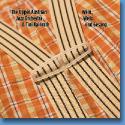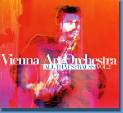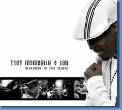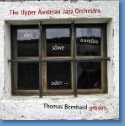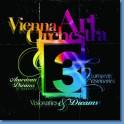|
Recommended CDs
|
||||
|
"Travelling Hard" - liner notes by Kurt Dietrich This is the second album as a leader for Robert Bachner, one of the most talented young trombonists in the world. Bachner’s debut statement, Heart Disc (ATS CD 0570), made in the wake of his study with New York trombone icon Conrad Herwig, reflected a great deal of musical “high energy.” The overall tone of this set (and Bachner’s playing) may have been brought down a notch, but there are plenty of musical sparks on this new release, in addition to thoughtful, mature musical reflection. The familiarity of the musicians with one another (it is the same personnel as on the earlier album) lends an even more impressive cohesiveness to this effort. A few comments about each of these seven Bachner compositions may be helpful. The opening (and title) cut, “Travelling Hard,” is dedicated by Robert “to all people whose job requires a lot of travel.” This includes his colleagues in the Vienna Art Orchestra, who often do tours that require 1000 kilometers of travel per day. The drive, swing and solo power of this group is obvious from the opening measures to the end of this composition/performance, with its interesting rhythmic twists and slightly irregular form. “Standard of Reference.” A critic suggested that Robert play a standard tune on his new CD, but when he sat down to write an arrangement of a standard, this original, a lilting jazz waltz, resulted instead. The chord changes of this tune are the sort that musicians love to play on witness the arresting statements of Christian Maurer on soprano saxophone and Uli Langthaler on bass. The ambiguity of the title of “Public Secret” is not reflected in the lovely chord progression and flow of this striking ballad. Maurer contributes some smoky tenor. Bachner, in addition to displaying the expected modern sophistication in harmonic and technical approach, also recalls an earlier style of romantic trombone balladry, a style perhaps not heard enough in 2006. Robert originally wrote “Backup” for the extravagantly low brass oriented group Heavy Tuba. In this version for reduced forces, the second statement of the head is interestingly scored in very close intervals. The relative calm of the composition is shattered in the solo section, where all of the soloists make extensive use of double time. Christian Salfellner, the driving force throughout, caps off the sequence with a cogent drum solo. The enigmatic title of “From 4 and to 2 and” refers to where the accents fall in several of this album’s compositions compared to where the accents fell in several of the compositions on Heart Disc. Not only that, but “4 and” (4 and 1/2) added to “2 and” (2 and 1/2) equals 7 the meter of most of this composition. (Did you get all that?) The meter sounds completely natural in the hands of soloists Bachner, Salfellner and Micko. The entrancing closer, “Early Dream,” represents a mood, but is not literally descriptive. It also is somewhat reflective of the famous “ECM” sound, embodied, in part, by the superb trumpeter Kenny Wheeler, with whom Robert often worked as a member of the Upper Austrian Jazz Orchestra. This diverse set of modern jazz compositions, beautifully realized in performance by an outstanding quintet, is another indication of the continued good health of jazz. As the music continues to spread and to be enriched by its practice by musicians of different backgrounds and cultures, jazz becomes, more than ever, both an individual and universal mode of expression. Kurt Dietrich
|
||||
